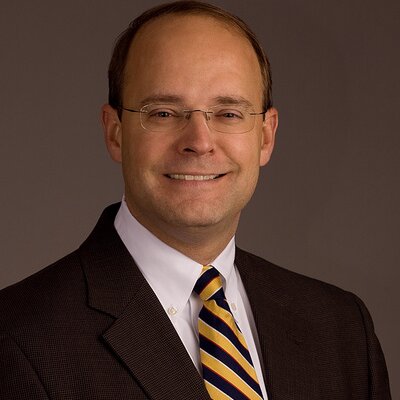By PAULA TRACY, InDepthNH.org
CONCORD – Hospitals are likely to be $300 million in the hole by the end of the year due to COVID-19 and must receive federal help now to keep the doors open, state lawmakers were told on Tuesday.
Calling losses “staggering and unsustainable” Steve Ahnen, president of the New Hampshire Hospital Association, gave an update on the financial impact of the pandemic on the state’s hospitals to the Legislative Advisory Board of the Governor’s Office for Emergency Relief and Recovery.
The state received $1.2 billion from the federal CARES Act to help with relief from impacts caused by COVID-19. About $200 million has not yet been allocated and there may also be unspent funds from programs established, which have to use the money before the end of the year according to federal law.
The pandemic has had significant impact for every sector of the economy, Ahnen noted, but particularly so for hospitals and medical facilities which eliminated elective surgical procedures and other non-emergency care in March.
Slowly, those procedures have been allowed to return but the impact has been significant on these medical institutions.
Specifically, Ahnen said, hospitals have seen a $516 million reduction in revenue since March.
He said it has been offset with over $300 million in federal and state help, “but we are still looking at $200 million in losses,” and “as we look to the next few months, those losses may amount to another $100 million by the end of the year.”
“We know as we move forward we are going to continue to need help,” Ahnen said, “in this tremendous time of need.”
It was noted that there are federal funds estimated to be about $50 billion in Washington which are unspent but Ahnen said it remains to be seen how much of that money and who might receive that in New Hampshire.
He said he was hopeful that another round of relief money could be allocated by the Congress after the November elections.
Mascoma Community Health
State Sen. Lou D’Allesandro, D-Manchester, spoke of critical concern he has for bailout funding for the Mascoma Community Health Center in the Upper Valley.
According to its Facebook page, the center serves 3,700 residents.
The application for funding was denied, and he suggested he and state Sen. Chuck Morse, R-Salem, create a subcommittee to get to the bottom of why that funding was not approved.
Taylor Caswell, the new chair of GOFERR and the state commissioner of the Department of Business and Economic Affairs, said an examination of that urgent situation could be expedited so that a resolution could be found.
Morse said he did not want to become “the review committee for every entity that did not get funding.”
“I don’t have any problem looking into this one,” he said. “I will work on Mascoma with Lou this week” however.
State Sen. John Reagan, R-Deerfield, asked if Mascoma’s problem is not COVID-19 related.
Caswell said he would have the subcommittee look at that as well.
PPE Availability
One of the most challenging aspects for health-care providers has been cost and access to personal protective equipment, Ahnen said.
Medical providers need the materials to protect them from contracting the virus. He said while the supply chain has improved, it certainly has remained an expensive and ongoing concern to purchase.
“That is not going to change any time soon,” he said.
All hospitals have been impacted, particularly in the south which has seen the majority of coronavirus patients, Ahnen said.
“That does not mean that all hospitals have not suffered significantly,” he stressed. “We are really going to need help to get us to the other side,” he said.
State Rep. Dick Hinch, the House minority leader, said net losses $188 million, are a small percentage of the $3.6 billion in revenue.
Ahnen noted that the hospital operating margins were at 1.1 percent before the pandemic.
“I hope we can continue to work in partnership to make sure that our hospitals will be there,” he stressed, “in this tremendous time of need.”
Senate President Donna Soucy, D-Manchester, asked about staffing.
Hospitals did have layoffs at the beginning of the pandemic but the staff is being returned as elective procedures have been allowed to go forward.
More GAP Funds
Members of the advisory board were interested in getting a specific amount of money that may be left over so that the second round of GAP funding might be able to go out before the end of the year.
That will be discussed at future meetings.
State Rep. Erin Hennessey, R-Littleton, said she is still hearing from various entities that were denied CARES Act funding. She singled out the nonprofit organization Turtle Ridge which was hoping for another round of GAP Program funding.
Caswell said nonprofits are definitely an area the state is looking at to receive funds with the remainder of the funding.
Schools
D’Allesandro said he is hearing from schools now that FEMA is declining to support remittance on items such as PPE.
Morse asked Caswell to get the schools to update where things stand in time for the next meeting.
Some members noted that because some schools are not open, that might alleviate some of the cost concerns for PPE needs.
Snowmobile Assoc. Funding
Hennessey moved that $154,000 in CARES Act funds be allocated for grooming machine repairs because fundraising was not able to be achieved this year due to the pandemic. It was approved although two Democrats voted against it.
Next Meeting Oct. 6
The GOFERR Legislative Advisory Board will meet again, virtually next week, particularly to deal with the Mascoma situation. It will also include a presentation from the schools. The meeting will be on Tuesday, Oct. 6 at noon.
For more information on the GOFERR board and to find out who has received CARES Act allocations by community, go to https://www.goferr.nh.gov/





